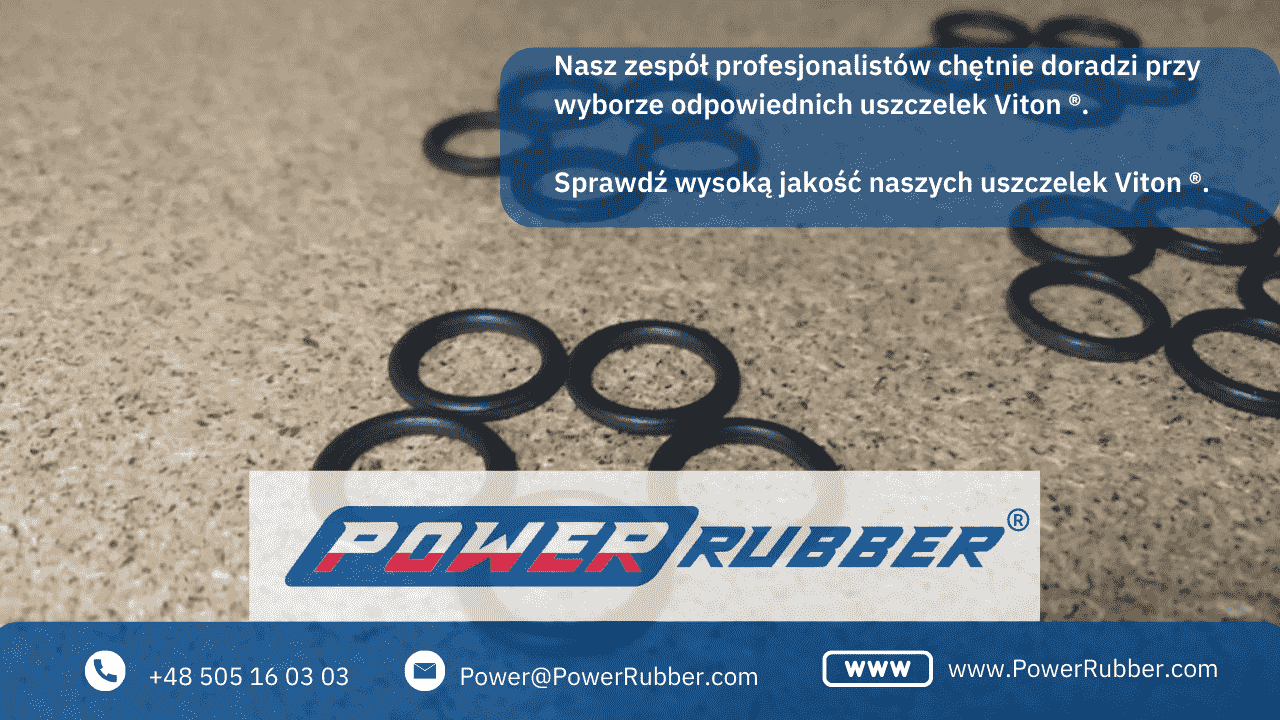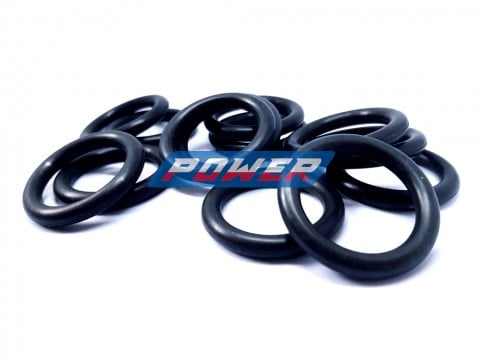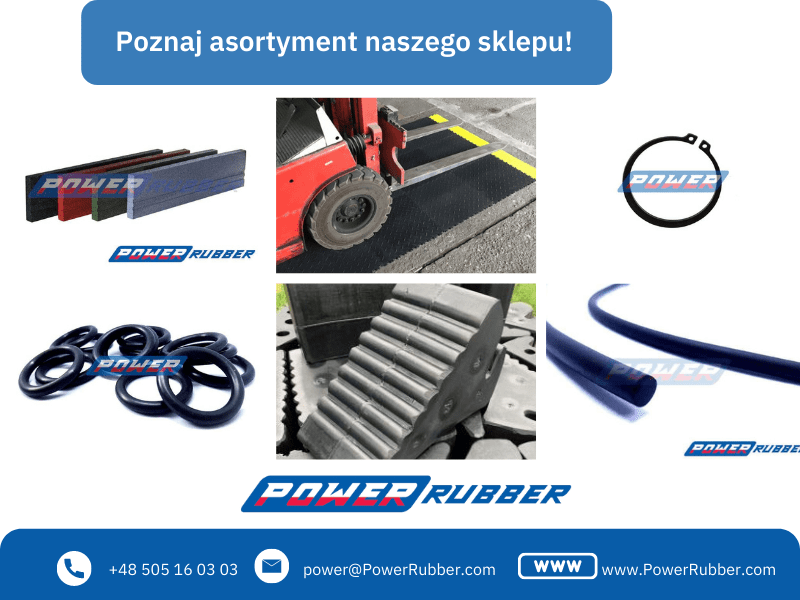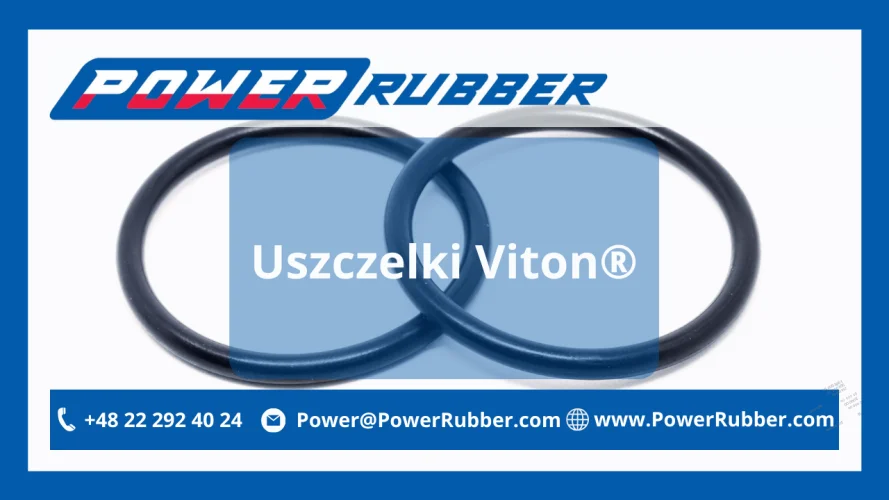Viton® seals
18.12.2023
In engineering considerations, a common problem when designing all kinds of solutions is the combination of two elements. Such a connection often requires the use of sealing. In the case of connections that are not exposed to unfavorable weather conditions, high temperatures, high pressure or vacuum, the type of seals that can be used is usually much larger. The problem arises when the connections are characterized by stringent standards resulting from the properties of the constructed or maintained device. In this case, it is necessary to use high-quality sealing products. The Viton® seal (fkm fpm) is a specialized elastomer which is produced on the basis of fluoro rubber in the process of polymerization of two monomers. This process leads to the formation of a copolymer for the production of which fluoride is used (most often vinylidene fluoride and hexafluoropropylene, and sometimes vinylidene and trichlorethylene fluoride). The final product has a name reserved by the American company Chemours - Viton®. This material has a number of very desirable properties, such as: 
 Viton FKM FPM seals
Viton FKM FPM seals 
- minimal loss of resistance under the influence of heat,
- very high chemical resistance,
- non-flammability,
- show low gas permeability,
- resistance to low pressure conditions, minimal weight loss of the gasket (vacuum),
- can be used in an ozone environment,
- resistance to UV radiation,
- resistance to aromatic hydrocarbons.
What is worth remembering when choosing a gasket?
The selection of a gasket from a wide range of products made on the basis of a material such as fluoro rubber, i.e. Viton®, should be based on the knowledge of the basic divisions among the available materials. It is worth familiarizing yourself with the individual categories that will allow you to choose the perfect product for specific applications. There are four families of viton polymers in sealing materials:- Type A (VF2 / HFP dipolymers) - products mainly used for general purpose sealing. Viton polymers of type a can also be found in automotive lubricants. The declared content of polymeric fluorine is 66%.
- Type B (VF2 / HFP / TFE terpolymers) - most often used in chemical installations and energy seals. The polymeric fluorine content used is 68%.
- Type F (VF2 / HFP / TFE terpolymers) - used in places where concentrated aqueous inorganic acids, water, steam are subject to sealing. The nominal content of polymeric fluorine fluctuates around 70%.
- Special types including GLT, GBLT, GFLT and Viton® Extreme (TFE / propylene and ethylene / TFE / PMVE copolymers) - these highly specialized varieties are used in the fields of automotive, oil exploration systems, special seals and also very difficult environmental conditions.
Uszczelki Viton®- gdzie nie należy stosować
Despite the very wide range of applications, the manufacturer distinguishes specific cases where Viton® gaskets may turn out to be a wrong choice due to their properties. In order to avoid problems related to the subject of the seal, it is worth remembering that Viton® fkm gaskets do not show resistance to;- glycol-based brake fluids (e.g. DOT3, DOT4 brake fluids, fluids with high boiling point and hygroscopic fluids),
- flux acid,
- chlorosulfonic acid,
- organic acids, such as thiocetic acid and formic acid,
- polar solvent (acetone, butanone, dioxane)
- ketones (acetone, acetophenone)
- hot steam
- ammonia, amines

Why Use Viton® Seals?
The decision to be made by the constructor or maintenance technician regarding the selection of the appropriate sealing when building or renovating an existing system on the premises of a serviced enterprise has consequences. The use of high-quality products, such as Viton seals, reduces the risk of costly plant downtime as well as cost-intensive changes to emerging projects for specialized companies. Sometimes the repair costs resulting from the use of inappropriate substitutes for sealing products can be many times higher than the value associated with ensuring the uninterrupted operation of the production line. The use of Viton® gaskets is a guarantee of the proper operation of complex systems even in the most difficult conditions, especially those where technical seals play an important role. The self-lubricating properties also speak in favor of the product. It is worth remembering that such gaskets are characterized by amazing dimensional stability. Ensuring work continuity is one of the most important factors determining the right choice of products of the highest quality and durability.FPM, FKM, VITON® - What are the differences?
Nomenclature in the category of products based on fluorine rubber is not 100% clear to everyone. When browsing catalog notes, information brochures, leaflets or industry material, you can meet the above-mentioned terms. All of them sound completely different, which could suggest that they refer to different materials from which individual products are made. The differences in the names are due to the standards in which the fluoro rubber products are embedded. The first name, FPM, refers to the standard of the International Organization for Standardization, which is a non-governmental organization associating national standardization organizations to establish a common measurement system. FKM, on the other hand, means matching the material to the general category of fluoroelastomers. This category is derived from the American ASTM system - American Society for Testing and Materials. It is a non-profit standards development organization. Viton® is a registered trademark of DuPont Performance Elastomers. The material from which the seals in question are produced was developed by the aforementioned chemical concern. Currently, Viton® fkm fpm are produced all over the world by many companies, including: Solvay, Halopoymer, Daikin Chemical. Dyneon (3M).How are Viton® seals made?
Fluorine rubber, used in the production of Viton® gaskets (fpm fkm), is subject to a specific production process. These materials are characterized by unprecedented chemical properties, obtained by adding a certain amount of polymeric fluorine. Fluorine mixtures are usually processed by pressing or injection molding depending on the type of further treatment. It is also possible to combine a material with a metal, and such a process requires vulcanization in an autoclave. Interestingly, thanks to the high macromolecular complexity, it is possible to use mechanisms such as ion cross-linking. The final product is used wherever technical seals are needed. It is available in all popular sizes and shapes. Viton FKM FPM seals
Viton FKM FPM seals Where should you use Viton® seals?
The decision on the form of seals to be used depends on many factors. If the device to be sealed due to the way it is made or production methods requires seals that show low gas permeability, then definitely a fluoro rubber seal can be a great idea. In a situation where the precision of the constructed or modernized machine requires the use of products that are characterized by dimensional stability, and resistance to, for example, aromatic hydrocarbons, the use of a fpm / fkm-based seal will ensure durability and reduce unnecessary interference during the operation of the entire system.
